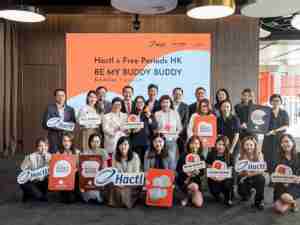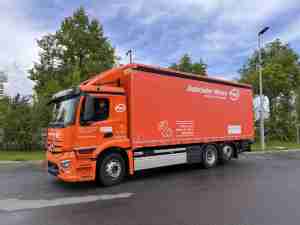Chinese Billionaires Spring Up With $47 Billion Delivery Fortunes
By: | Mar 01 2017 at 08:37 PM | Logistics
Shuttling parcels around for Alibaba and other retailers is creating China’s latest wealth explosion, with a surge in shares of S.F. Express making Wang Wei the country’s third-richest man.
It’s a stark reversal for a company that got its start in what Wang has called the sneaky business of “black delivery,” back in the ’90s when only China’s post office was allowed to handle packages. The courier company he created navigated the shadows of the border between China and Hong Kong for 16 years until the government gave its sanction.
Last week’s official launch of S.F. Express’s so-called backdoor listing on the Shenzhen Stock Exchange, approved in December and pushed through rapidly with government support, helped produce a 59 percent surge in shares of parent S.F. Holding Co., giving Wang a net worth $27.6 billion on the Bloomberg Billionaires Index at the close of trading in New York Tuesday. His fortune added another $1 billion during Wednesday trading in China.
The Friday launch coincided with a bonus awarded to S.F. employees by Wang himself the same day, which many used to buy company shares. These purchases contributed to the dramatic rise in the share price, in part due to the relatively small amount of outstanding shares being traded.
Wang and five other package delivery billionaires, including the founder of ZTO Express Inc. which debuted on the New York Stock Exchange in October, have seen their fortunes swell based on listings in the past five months alone, amassing a combined wealth of about $47 billion, the Index shows. They’re all part of the online shopping boom led by Alibaba Group Holding Ltd., with Wang’s S.F. Express the leader by revenue ahead of hundreds of competitors.
“There’s a history of rough competition in this industry in particular.”
That they all sought money in capital markets in such a short period, most using the quicker route of so-called backdoor listings instead of initial public offerings, points to an underlying tension: With business surging, competitors are piling in, driving down profit margins and setting up the industry for consolidation to just two or three key players—like FedEx Corp., United Parcel Service Inc. and DHL Express elsewhere. The race to raise money and expand into China’s smaller cities will determine which companies survive the eventual shakeout.
“The industry has passed the first phase of vigorous growth,” said Su Baoliang, a Beijing-based analyst at Sinolink Securities Co., who estimates revenue growth will slow to 15 percent in the next two to three years from its current rate of 40 percent. “Companies have to enhance operational efficiency. Otherwise they will be either marginalized or acquired by competitors.”
Yet Chinese companies are also counting on opportunity—on Jack Ma of Alibaba and his promise to U.S. President Donald Trump to create U.S. jobs by linking 1 million American small businesses with Chinese buyers. That’s a lot of potential deliveries.
“Not only the past decade, but the next few years will also be a golden age for Chinese couriers’ development,” said John Song, a Shanghai-based director of the logistics and transportation practice in China at consultancy Deloitte. “There is huge potential in the development of these Chinese couriers.”
After not even permitting private delivery services until 2009, the Chinese government has since been encouraging competition and fostering consolidation. In the past decade, due to decreasing operational costs combined with more entrants piling in, the average price of delivering a package dropped 57 percent to 12.8 yuan ($1.86), according to the State Post Bureau, which regulates postal services. In the U.S., the cost per package averages $10.
Government support for the industry has also included encouraging Chinese package delivery companies to seek capital through equity markets—and approving their bids to raise money quickly, through backdoor listings that involve the companies taking over others, typically in unrelated fields, that are already publicly traded. So-called reverse mergers take a year or less to result in access to equity, while an IPO in China may take as long as three years, according to Sinolink’s Su. China’s current list of IPO seekers has 621 companies awaiting approval by the China Securities Regulatory Commission.
The CSRC approved the backdoor listings of four package companies in short succession last year, even as the regulator flagged concerns broadly about the practice. The first to announce its takeover intent, in October 2015, was STO Express Co., which concluded it 14 months later. The company is owned by Chen Dejun, who has a net worth of $2.2 billion, and his sister Chen Xiaoying, who has $2 billion.
STO Express is part of a group of companies with similar names and business models that feed off proximity to Alibaba’s headquarters, in Hangzhou. They’re known as the Tonglu gang, after the county in Zhejiang province where many of the companies originated. The group includes ZTO Express founder Lai Meisong who listed his company in New York in October and has a $2.7 billion net worth, according to the index; YTO Express Group Co., whose founder Yu Huijiao is now worth $7.3 billion following its reverse takeover on the Shanghai exchange that same month; and Yunda Holding Co.’s Yunda Express, whose Chairman Nie Tengyun’s net worth totals $5.3 billion after its backdoor listing in Shenzhen in December.
Lai spoke with Bloomberg News in December and declined to comment on his wealth. Representatives for Wang, Yu, Nie and the Chens also declined to comment on the billionaires’ net worth.
YTO has said it intends to use its new equity to increase capacity and speed up service by building distribution hubs and using more sophisticated equipment. Chairman Yu told the official China Daily last year that the company planned to have at least three wide-body cargo planes for international deliveries by 2018. U.S.-listed ZTO plans to widen profit margins by increasing capacity and automation at its sorting hubs, its Chief Financial Officer James Guo said in a phone interview in December.
“The bigger players are becoming bigger, while the smaller ones will be eventually eliminated,” Guo said, predicting that just two large delivery companies will be left in five to 10 years, each with more than 20 percent market share. A handful more in the second tier will have less than 10 percent share each, he predicts.
The battle takes a toll on workers, many of whom work 12-hour shifts, six or seven days a week, according to Keegan Elmer, a researcher for the China Labor Bulletin, a Hong Kong-based workers’ rights group. Wages are often based on how many parcels they can deliver, and terms can be changed arbitrarily, he said.
“There’s a history of rough competition in this industry in particular,” Elmer said. “It used to be a really hot job, where migrant workers could expect to make a lot of money relatively quickly, but these days the wages and conditions are stagnating or actually getting worse.”
China’s package volume totaled 31 billion last year, and online shopping led by Alibaba’s shopping platforms, Taobao.com and Tmall, were responsible for 60 percent of it, according to the State Post Bureau. The Tonglu gang companies currently rely on Alibaba for as much as 70 percent of their deliveries.
S.F. Express has a different story, with just 20 percent reliance on e-commerce, according to Sinolink’s Su. Wang, the son of a Russian interpreter for the People’s Liberation Army Air Force, saw opportunity early in the trade across China’s border with Hong Kong, not long after former paramount leader Deng Xiaoping made his famous visit to Shenzhen and set the country on the path of economic reform. While Wang’s family immigrated to Hong Kong when he was a child, he later returned to China to establish the business, first in a smaller city in Guangdong province, and then in Shenzhen.
“When S.F. started delivering packages in the 1990s, it was still an illegal business called ‘black delivery,” Wang said in a Q&A in 2011 with the official People’s Daily, the only interview he is known to have granted. “According to the regulations then, we would be fined if our operations were caught by postal officers, so we had to handle packages sneakily.”
Now the courier operates a fleet of 36 cargo aircraft and about 15,000 vehicles. It reported revenue of 48.1 billion yuan in 2015, the highest among its domestic peers, according to its listing prospectus. It intends to build a cargo airport in the central Chinese province of Hubei, the prospectus said.
Chinese officials approved S.F. Holding’s takeover of a previously trading company in December. Shares surged last week following the release of preliminary results that showed revenue of 57.5 billion yuan and net profit of 2.6 billion yuan last year, 21 percent higher than the company estimated in its listing prospectus. Then on Friday, a formal stock exchange debut and name-change ceremony that coincided with the employee bonus preceded its stock reaching its 10 percent daily limit, which occurred again Monday through Wednesday.
About 20,000 stock trading accounts were opened by S.F. Holding employees, according to people familiar with the matter, who asked not to be identified because they weren’t authorized to discuss it. The employees who opened these accounts all used them to buy shares of S.F. Holding, the people said. A spokesperson for the company said while it’s possible some staff may have bought S.F. stock with the bonus, they weren’t told to do so. She declined to comment on how many bought shares.
It’s unclear how much the gains in S.F. Holding’s stock have been driven by employee purchases, especially as newly listed companies have been favored by China’s stock traders. In 2016, initial public offerings gained by a median of 392 percent in the first month after listing.
Diversifying will be critical for China’s package deliverers. The Tonglu companies are seeking to move away from their reliance on Alibaba and increase their same-city delivery and cross-border e-commerce, Deloitte’s Song said.
“Now a variety of options are opening up, and with money on hand via listings, their businesses may become more and more divergent,” Song said. In the next decade, S.F. and some of the Tonglu companies “may be able to compare with the world’s ‘Big Three’ couriers in terms of market size.”









